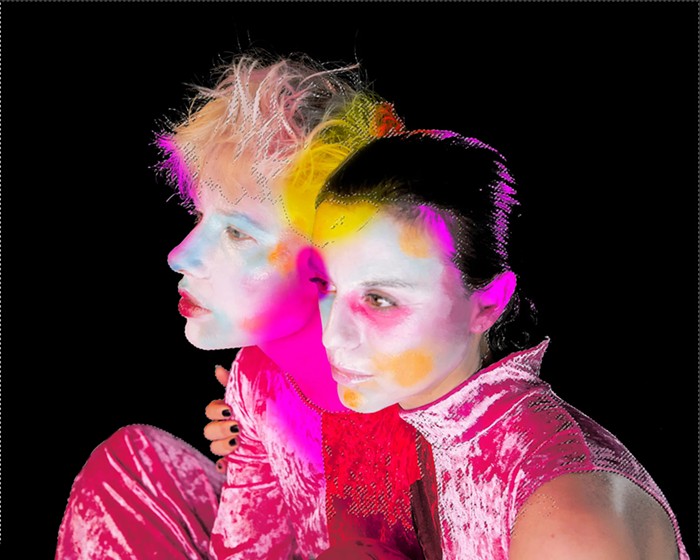Thurs June 21 at Central Saloon.
Song 17 rolled around. Jesus Christ, I thought. But I happened to know that this was the final song for tonight's opener the Social Studies, because frontwoman Heather Tews had told us so at song 14. "We have a few more songs to play for you," is what she'd said. And when she'd said it, I was impressed by her confidence. Often an opener is apologetic at this point--uncertain as to whether the audience is still engaged--but Tews' pledge had come out benevolently, the way a headliner might say, "You're sweet. Here's three more, and then we have to go."
But, to my surprise, the show didn't even end after song 17. And none of the 28 people gathered around the stage at the back of Pioneer Square's Central Saloon seemed to mind that the set finally wound down at a self-indulgent 20. Tews had held them--full and beautiful, with a big smile, a pint in her right hand, and a huggy, horizontally striped dress that drew the eye.
The first song began slowly, soulful and jazzy, but a few tempo changes immediately revealed a strong live dynamic. The first thing I noticed was Jeff Rush's drumming. He hits heavy when needed, and plays excellent fills. Brendon Wright plays solid left-handed bass lines on his keyboards, and though this is in many ways a wanky band (I was thinking Swing Out Sister during the first song), one doesn't even feel an absence of bass at any point in the set. And then, by the song's end, Wright played a warbly keyboard part to lend a more rock and roll/experimental element to the sound. Nathan Darden's sax-playing is strong and fun, though he is easily the goofiest member of the band--difficult to look at in the cowboy hat he put on just for the show, and shirtless beneath a black vest.
The band attempts a range of styles. On the third song, the keyboard took the lead, propelling a pretty intro over which Tews sang beautifully. There was a rise in intensity, though her voice is more interesting when she is gentle and playful; it also coheres better with her stage presence, which is light and very sweet.
On the fifth song, there was a strong interplay between soft and hard dynamics. Tews' throat opened gorgeously, reminiscent of Katharine Whalen (Squirrel Nut Zippers) in depth and richness. But as the song became more propulsive, I actually thought of PJ Harvey. There was an urgency here, almost a punk-rock undertone.
By the seventh song, the show's energy had somewhat diminished. Song six lacked dynamic, and this one was plain, like a schooled-but-bored effort from any old peppy bar band. Perhaps the band was aware of the wane, because song eight was a treat: Journey's "Any Way You Want It," well executed, without a stitch of irony. Tews had fun with it and the whole band loosened up. The next song had two unaccompanied toy-piano breaks, during which Tews put her finger on her head and twirled like a mechanical ballerina, encouraging a few of the audience members to mirror her. People cheered, exuberant.
The show's highlight was the 14th song. The voice and saxophone twinned beautifully over a keyboard line, and then the mood shifted into fine, gentle pop. It was the least cluttered of the entire set. The band stopped midway through and clapped as Tews sang a verse. The other players smiled as they watched her. The audience joined in the beat-keeping. When the band came back in, the song worked into an exciting climax. It was precious, cheesy, and genuinely great.


















